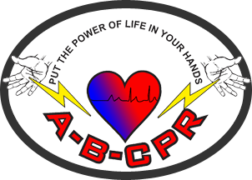Heart disease remains the leading cause of death in the United States, making it a critical health concern for everyone. While many public places are equipped with defibrillators and CPR training is becoming more common, prevention is always better than intervention. Fortunately, there are actionable steps you can take to reduce your risk. Here are four simple yet impactful ways to improve your heart health starting today.
1. Start Exercising
Regular physical activity is one of the most effective ways to lower your risk of heart disease. Exercise helps by:
- Reducing blood pressure: High blood pressure is a significant risk factor for heart disease.
- Improving cholesterol levels: Physical activity raises good cholesterol (HDL) and lowers bad cholesterol (LDL).
- Strengthening your heart: A stronger heart pumps blood more efficiently, reducing strain.
You don’t need to become a gym enthusiast to reap the benefits. Aim for at least 150 minutes of moderate exercise weekly. Simple habits like walking while watching your favorite Netflix show or biking during your downtime can make a big difference.

2. Stop Smoking
Smoking is a major contributor to heart disease, causing:
- Increased blood pressure: Smoking narrows blood vessels, forcing the heart to work harder.
- Reduced exercise capacity: Damage to lungs and circulation limits physical endurance.
- Greater risk of clots: Smoking contributes to blood clot formation, which can lead to heart attacks.
If you’ve struggled to quit smoking, know that help is available. Talk to your doctor about personalized plans, support groups, or nicotine replacement therapies to increase your chances of success.

3. Start Eating a Heart-Healthy Diet
Your diet plays a crucial role in maintaining a healthy heart. While it’s tempting to indulge in fast food or sugary treats, these can lead to weight gain, high cholesterol, and increased risk of heart disease. Instead, focus on:
- High-fiber foods: Oats, beans, and whole grains help reduce cholesterol.
- Lean proteins: Fish, chicken, and plant-based proteins promote muscle and heart health.
- Healthy fats: Incorporate sources like avocados, nuts, and olive oil in moderation.
Remember, healthy food doesn’t have to taste bland. Experiment with herbs, spices, and creative recipes to make nutritious meals enjoyable.

4. Visit Your Doctor Regularly
Regular check-ups are essential for early detection and prevention of heart disease. Here’s why:
- Identify risk factors: Blood tests and screenings can uncover high cholesterol, diabetes, or hypertension before they become severe.
- Specialized advice: Cardiologists can provide tailored recommendations to improve your heart health.
- Ongoing monitoring: Regular visits help track progress and adjust your prevention plan as needed.
By staying proactive with your health, you’ll be less likely to face unexpected complications.

Prepare for Emergencies
While prevention is key, being prepared to handle a cardiac emergency is equally important. Taking a CPR class equips you with the skills to act quickly if someone experiences a heart attack. Online CPR courses are a convenient way to learn life-saving techniques without leaving your home. Explore courses at A-B-CPR to get started today.
Conclusion
Heart disease doesn’t have to be inevitable. By exercising regularly, quitting smoking, eating a heart-healthy diet, and visiting your doctor, you can significantly lower your risk. Combine these preventive measures with CPR training to ensure you’re ready to help in an emergency. Start making these changes today for a healthier, longer life.





